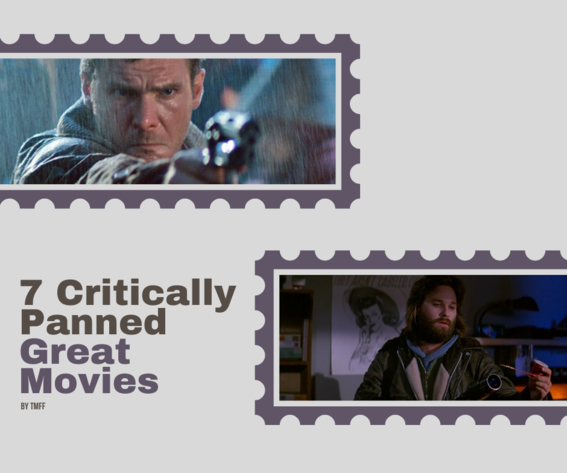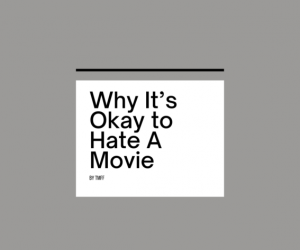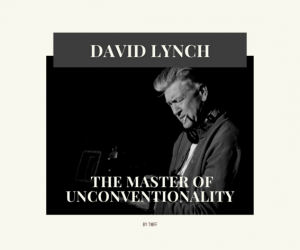Listening to the critics is a natural part of finding a great movie. After all, critics are there for a reason and help guide society into knowing if a film is worth checking out or not. Still, critics aren’t perfect, and there have been numerous instances of films being critically panned despite being fantastic.
Critics may initially hate on a movie because of its current cut, what’s popular at the time, or for simply not understanding the film. Regardless, we’re going to highlight seven critically panned great movies. We’ll mention each film’s logline with a brief analysis and discussion of each. Without further ado, let’s get started!
1. Blade Runner (1982)
Logline: A blade runner must pursue and terminate four replicants who stole a ship in space, and have returned to Earth to find their creator.
Upon its initial release, Blade Runner was one of the most misunderstood gems of the 1980s, a slow burn of sci-fi neo-noir amidst the 1980s action-packed mayhem-driven films. Thankfully, it didn’t take audiences long to go back and realize the genius of Ridley Scott in Blade Runner, even if it took a few new cuts to ensure it.
2. The Thing (1982)
Logline: A research team in Antarctica is hunted by a shape-shifting alien that assumes the appearance of its victims.
Like Blade Runner, The Thing was extensively panned by critics, mainly because of the anti-authoritarian motifs that ran rampant throughout it. Nowadays, The Thing is regarded as a quintessential piece of horror and sci-fi.
3. The Shining (1980)
Logline: A family heads to an isolated hotel for the winter where a sinister presence influences the father into violence, while his psychic son sees horrific forebodings from both past and future.
It’s hard to imagine any critic have anything negative to say about Stanley Kubrick, but The Shining wasn’t well-received initially. Most of the criticism came to critics thinking Jack Nicholson and Shelley Duvall over-acted, but looking back, those critics were undoubtedly wrong.
4. Fight Club (1999)
Logline: An insomniac office worker and a devil-may-care soapmaker form an underground fight club that evolves into much more.
The first rule about Fight Club is you don’t write a blog analyzing why critics initially hated it. Although a cult classic today, many felt the film was excessively violent and pointlessly male-dominated. Nowadays, it’s regarded as one of Brad Pitt’s and Edward Norton’s best performances.
5. Psycho (1960)
Logline: A Phoenix secretary embezzles $40,000 from her employer’s client, goes on the run, and checks into a remote motel run by a young man under the domination of his mother.
Heavily regarded as a gimmick and missing the point entirely, Psycho flat-out confused critics in 1960. Today, it pioneered censorship boundaries of films and what the audience could handle. Suspense and horror films would be vastly different today without Psycho.
6. Vertigo (1958)
Logline: A former police detective juggles wrestling with his demons and becoming obsessed with a hauntingly beautiful woman.
Two years before critics left theatres and wrote nasty pieces about Psycho. Hitchcock’s 1958 film felt a similar wrath from critics but for different reasons with initial criticism regarding the film as painfully slow and pointless.
7. The Big Lebowski (1998)
Logline: Jeff “The Dude” Lebowski, mistaken for a millionaire of the same name, seeks restitution for his ruined rug and enlists his bowling buddies to help get it.
Who could hate a Coen Brothers’ film? Although not as heavily panned as the others on this list, critics were mixed upon The Big Lebowski’s initial release. Its length, direction, and story structure offset many, but today, many feel The Big Lebowski is one of the strongest comedies in cinema history.

















